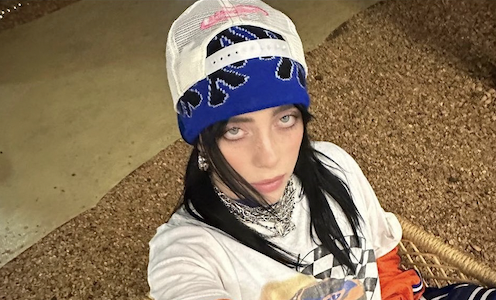In recent discussions on sustainability within the music industry, Billie Eilish has emerged as a vocal advocate for more eco-friendly practices. The conversation gained significant attention following her remarks in a Billboard interview, where she critiqued the practice of releasing multiple vinyl variants of albums, labeling it as wasteful. Eilish’s comments sparked widespread speculation and debate, prompting her to clarify her stance through social media. This article aims to distill the essence of her arguments and the broader implications for the music industry.

Eilish’s primary concern revolves around the environmental impact of producing numerous vinyl editions. She observes that this trend not only generates unnecessary waste but also serves as a tactic by artists to boost sales and chart positions. Despite the backlash, Eilish was quick to point out that her critique was not aimed at individual artists but addressed a systemic issue within the industry. She emphasizes that even she has participated in such practices, underscoring the pervasive nature of the problem.
The pop star’s call to action is for both artists and the industry at large to adopt more sustainable practices. She and her mother, Maggie Baird, have already taken steps in this direction, utilizing recycled materials for their album variants and partnering with eco-conscious organizations. Eilish’s efforts demonstrate a commitment to minimizing her environmental footprint, a stance she hopes will inspire others.
The reaction to Eilish’s comments underscores a broader debate on sustainability in entertainment. Some fans misinterpreted her remarks as a direct attack on specific artists, highlighting the sensitivity and complexity of discussing environmental issues in a celebrity-driven culture. However, Eilish’s clarification on Instagram aimed to steer the conversation back to the underlying issue: the urgent need for environmental responsibility.

This incident reveals the challenges and opportunities of addressing sustainability in the music industry. While Eilish’s critique may have initially caused controversy, it also opened a platform for discussing meaningful change. Her advocacy emphasizes that sustainability should not be an afterthought but a fundamental consideration in production and promotional strategies.
The push for more eco-friendly practices is gaining momentum across various sectors, and the music industry is no exception. Eilish’s vocal stance serves as a reminder that artists wield significant influence in shaping industry norms and consumer expectations. By championing sustainability, artists like Eilish can play a crucial role in catalyzing industry-wide shifts towards more environmentally responsible behaviors.

Furthermore, Eilish’s efforts extend beyond mere advocacy. Through her involvement with organizations like Support + Feed and REVERB, she actively contributes to environmental sustainability and encourages her fans to do the same. These initiatives highlight the potential for collaboration between artists, organizations, and fans to make a tangible impact on environmental issues.
In conclusion, Billie Eilish’s comments and subsequent clarification shed light on the importance of sustainability in the music industry. While her initial remarks sparked debate, they ultimately contributed to a larger conversation about environmental responsibility. As the industry continues to grapple with these challenges, artists like Eilish will undoubtedly play a pivotal role in driving forward a more sustainable and conscious approach to music production and consumption.
Sources:
- Billboard: “Billie Eilish Clarifies Comments About ‘Wasteful’ Vinyl Variants: ‘I Wasn’t Singling Anyone Out’”
- Warm 106.9: “Billie Eilish clarifies “wasteful” vinyl variants comments”
- People: “Billie Eilish Clarifies She ‘Wasn’t Singling Anyone Out’ in Her Comments About Artists Releasing Vinyl Variants: ‘Sheesh'”
- Pictures can be found on instagram @billieeilish







